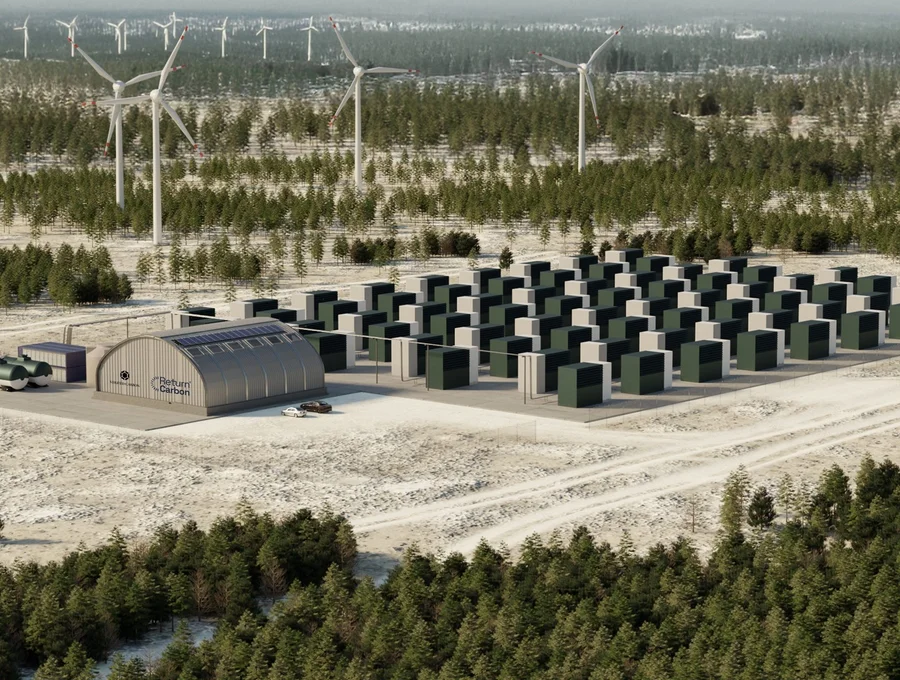A direct air capture hub in Texas, USA, created by Return Carbon and Verified Carbon, can capture and store CO₂ on site and is powered by renewable energy.
Climate change demands innovative solutions, particularly in tackling CO₂ that can remain in the atmosphere for centuries.
While reducing carbon emissions is critical, addressing historical emissions is also important.
Both nature-based solutions and technological interventions, like carbon capture and storage (CCS), play a role.
Return Carbon and Verified Carbon’s Project Concho aims to remove more than 45,000 tonnes of CO₂ annually with plans to increase this capacity to over 450,000 tonnes each year by expanding operations.
It is poised to become the first direct air capture (DAC) hub in the US exclusively powered by wind energy.
Situated in Texas, this facility combines cutting-edge DAC technology with onsite geological carbon storage, securing a permanent solution to atmospheric CO₂.
Robert Little, gTech Sustainability Strategy Lead at Google, explains: “By utilising wind power, Project Concho reduces reliance on fossil fuels, potentially decreasing CO₂ emissions from energy generation by up to 90% compared to traditional DAC facilities.
“As we continue to innovate and scale up DAC technologies, the integration of renewable energy sources like wind power will be crucial for maximising its effectiveness and minimising its environmental impact.”
About Return Carbon and Verified Carbon
Based in Amsterdam in the Netherlands, Return Carbon is a venture from energy transition investment platform Return.
Verified Carbon, based Texas and born from the University of Texas at Austin, develops sustainable DAC solutions that are poised to manage carbon emissions.
“Project Concho is a significant step forward in scaling up DAC,” says Martijn Verwoerd, Managing Director of Return Carbon.
“This opportunity aligns perfectly with Return Carbon and Verified Carbon’s joint mission to mitigate climate change through the scalable commercialisation of new technologies in impactful infrastructure projects.
“We’re thrilled to make West Texas a home for this groundbreaking DAC hub and create new opportunities for the region.”
The partners powering carbon capture progress
The wind farm that will power Project Concho is being developed by Greenalia, an independent power producer committed to renewable energy technologies across Europe and the USA.
Skytree, the DAC technology provider selected for Project Concho, was born out of research initiatives from the European Space Agency and is at the innovative forefront of carbon removal technology.
“We are excited about the partnership with Project Concho and there is a vision and a framework for collaboration that our companies share,” says Alexandre Alonso, SVP of Business Development at Greenalia.
“The flexibility offered by the DAC hub to optimise around energy price peaks is a game changer for renewable energy projects.
“It not only strengthens the business case for our wind farm under development in Texas but also contributes to adding innovative business models and alternatives for a greener energy landscape in the US.”
Elena Nikonova, VP North America at Skytree, adds: “Project Concho is a first-of-its-kind collaboration that opens the door to even more ambitious and transformative carbon removal projects.
“Deploying DAC at scale is necessary to drive down costs across the value chain and achieve greater impact and we are thrilled to provide the technology needed to bring Project Concho to life.”



